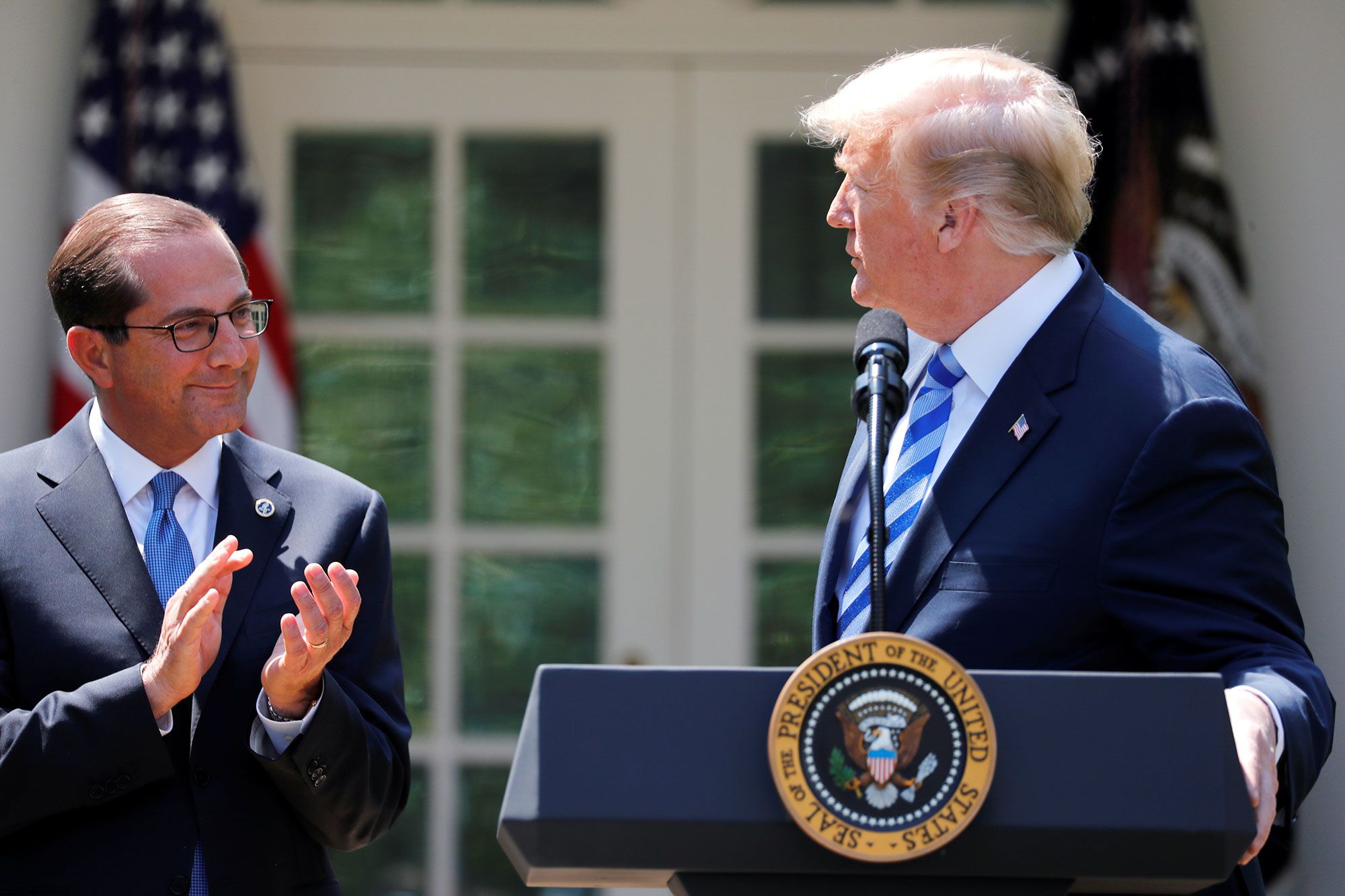
Juul’s decision to halt the sales of most of its flavors will not deter the Trump administration’s plans to remove flavored e-cigarettes from the market, Health and Human Services Secretary Alex Azar told CNBC.
Juul last week said it would discontinue online sales of its fruit, creme, mango and cucumber nicotine pods. The market leading e-cigarette company halted sales of these flavors in bricks and mortars stores last fall amid pressure from the Food and Drug Administration.
“We want anything that’s attractive to kids to not be available for kids,” Azar said in response to Juul’s announcement in an interview. “It doesn’t stop what the president and I are working on.”
Azar and acting Food and Drug Administration Commissioner Ned Sharpless last month said the Trump administration was readying a plan to remove all flavored e-cigarettes from the market while the FDA reviews them. The flavors could make their way back on store shelves once the FDA clears them for sale.
Azar and Sharpless, who at the time said the plan would be released within weeks, haven’t provided more details since the announcement. Now more than a month later, the administration has yet to share any details. At the time, administration officials said their plan would remove mint and menthol products, leaving just tobacco-flavored e-cigarettes on the market.
Mitch Zeller, the director of the FDA’s Center for Tobacco Products, said Thursday that the administration is “hard at work” on the flavor ban.
“It’s one of the reasons why I need to get back to the office after this talk,” he said at the Food and Drug Law Institute’s Tobacco and Nicotine Products Regulation and Policy Conference in Washington, D.C. “And I cannot talk publicly about any of those internal deliberations other than to say more details to follow as soon as that guidance document is released.”
A week ago, Juul said it would keep selling its mint and menthol flavors, for now at least. The announcement cast doubt on whether the administration would follow through with including these flavors in its impending policy.
Menthol is a longtime battleground between the tobacco industry and the public health community. Menthol cools the throat, masking the harshness of cigarette smoke and making it easier for young people to start smoking. More than half of minors between the ages of 12 and 17 who smoke use menthol cigarettes, according to the Centers for Disease Control and Prevention.
The landmark 2009 Tobacco Control Act banned all flavors from cigarettes — except menthol and tobacco. Lawmakers exempted menthol after intense lobbying. The law directed the FDA to study menthol, and the agency’s own research has found evidence that menthol encourages minors to start smoking.
The FDA is looking at how to address tobacco flavors, including a possible ban on menthol cigarettes. The agency published a proposed rule last year that’s received more than 500,000 comments so far.
The battle over menthol has extended to e-cigarettes. Among high school students who vape, mint and menthol was the second-most popular flavor behind fruit, according to preliminary data from the Centers for Disease Control and Prevention’s 2019 National Youth Tobacco Survey.
Public health groups swiftly criticized Juul’s decision to keep selling mint and menthol.
“Juul knows that nearly two-thirds of high school students who use e-cigarettes now use mint or menthol flavors, which is driving Juul’s bottom line,” Michael Bloomberg, former New York City Mayor who has poured $160 million into banning flavored e-cigarettes, said in a statement.
Non-tobacco flavors, including mint and menthol, account for 80% of Juul’s U.S. sales, according to a person familiar with the company’s finances who asked not to be named because the information is private. The flavors Juul discontinued this week accounted for 10% of Juul’s U.S. sales, down from 50% last year when the company pulled them from stores.
Company spokesman Austin Finan said Juul will continue to review its policies and practices ahead of the FDA’s guidance and has not made any final decisions. The company said it is not lobbying the Trump administration on the matter and “will fully support and comply with the final policy when effective.”
Groups like the Campaign for Tobacco-Free Kids used Juul’s announcement to urge the Trump administration to include mint and menthol in its policy. FDA spokesman Michael Felberbaum said the agency plans to share more on the specific details of the plan and its implementation soon.

